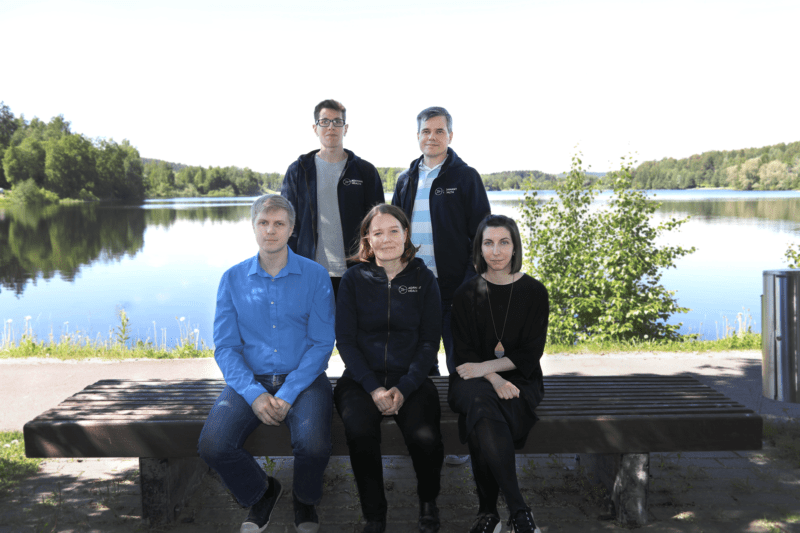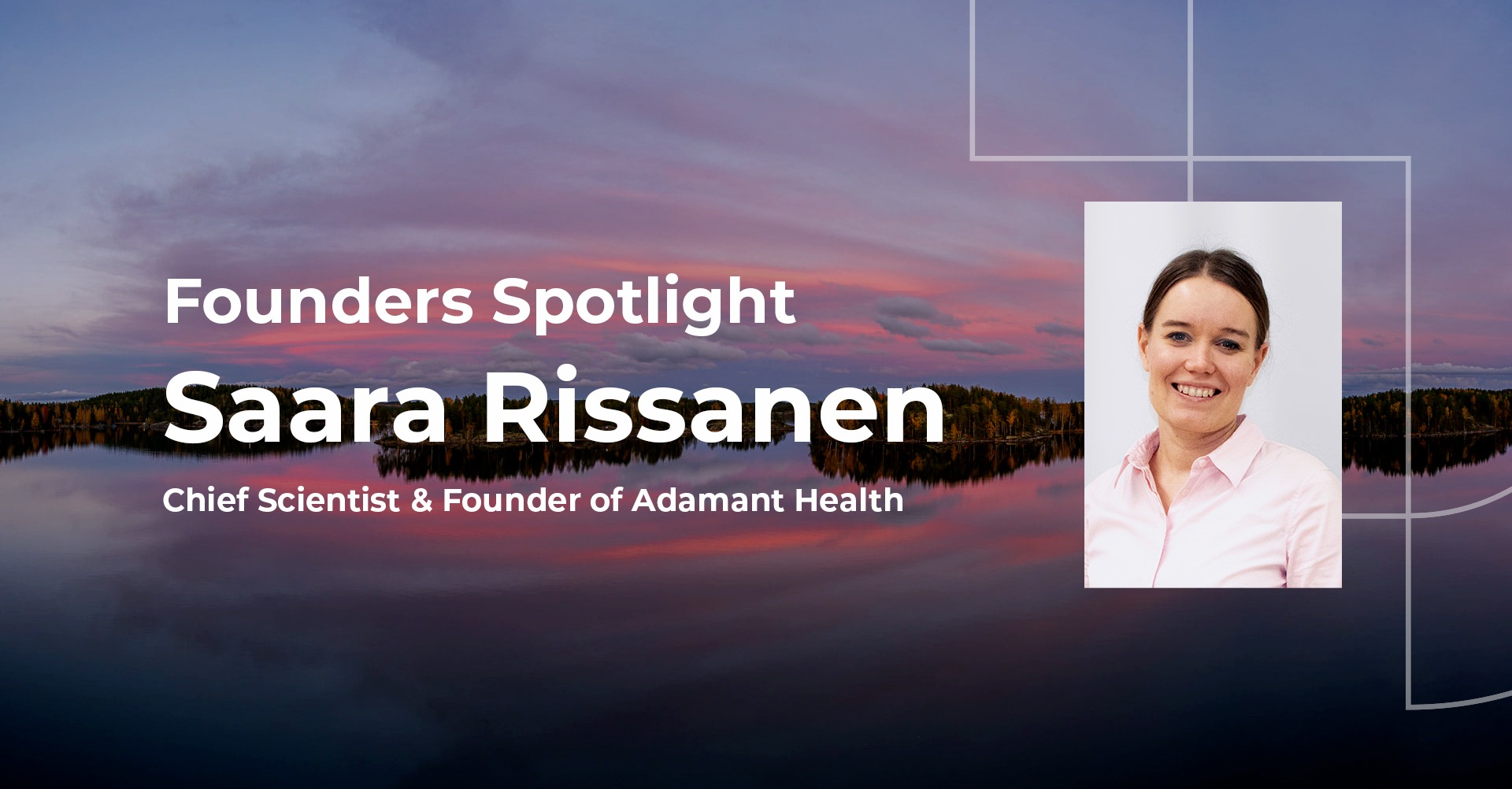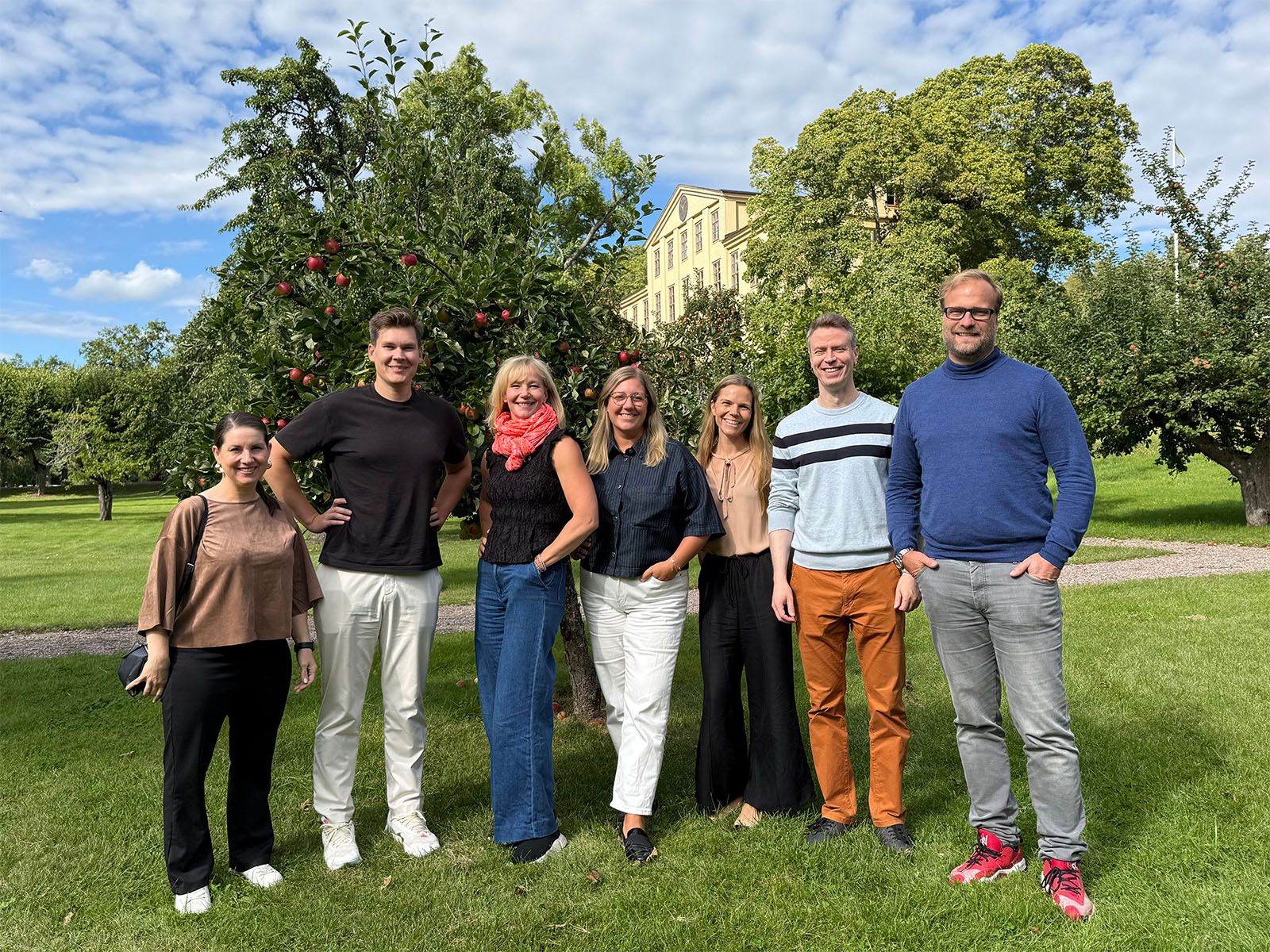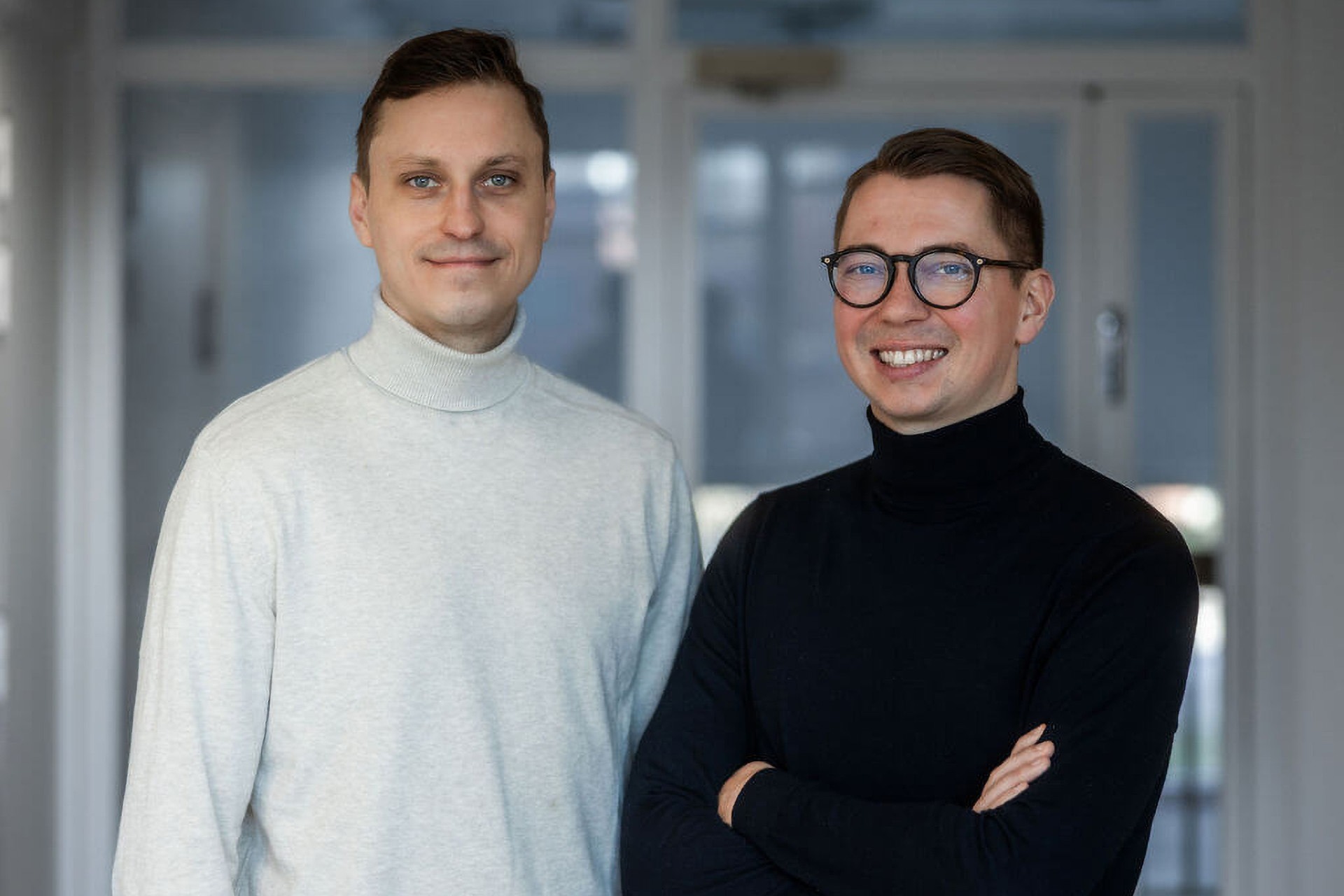This time at the Founders Spotlight blog series we are talking with the co-founder and Chief Scientist of Adamant Health, Saara Rissanen. Adamant Health aims to improve the quality of life for people with Parkinson’s disease and other movement disorders. The company is one of our latest investments and founded just little over a year ago in August 2020.
To set up the scene, let’s start with who you are? Tell us your story up to date.
I grew up with my mom, dad, and three sisters in Eastern Finland, Kuopio. My mum worked as a nanny at home and my dad was on disability pension. No one in my family was highly educated or no one in our circle of friends whatsoever. I always knew I wanted to change that.
As a young girl, I was interested in many subjects: languages, mathematics, and human physiology. One of my dreams was to become a doctor that would help people with medical problems. I ended up studying physics and mathematics in my hometown at the University of Eastern Finland. During my studies, I got excited about medical physics. I saw how with the help of physics and mathematics we can help people with various medical problems. We can actually invent some new methods and tools.
After the Master’s degree, my supervisor Markku Kankaanpää (Chief Physician of Physical Medicine and Rehabilitation) and Arto Remes (former CEO of Mega Electronics Ltd) asked me to do my PhD research on developing analysis methods for Parkinson’s disease. I ended up working in the Biosignal Analysis and Medical Imaging group of the University of Eastern Finland led by Professor Pasi Karjalainen. During my research career, I have had a privilege to work with several clinical partners and real patients hearing their stories with the disease.
Can you tell us a little about how you came to the decision to transform your research into a company?
In 2017, I had done over 10 years of research on developing measurement and analysis techniques for movement disorders such as for Parkinson’s disease. With the precious support from my university colleagues, we wanted and decided to find a way to get the research results in practical use. We applied for Research to Business funding (former TUTLI) from Business Finland and received the funding for the years 2017-2019.
During that project, we started from the beginning in a business sense. We designed the product concept and started the IPR protection process for the invention. We made a proof-of-concept study with the research prototype together with clinical partners. In addition, we performed a preliminary market and partner analysis and drafted the first plans of earning models for each customer segment.
It was not self-evident for me to become a founder of a new company. It took some years to grow into that idea; to ensure myself that I am capable and there is help available, if needed. Several talks with startup advisors, other startup founders and potential investors helped me in that process. I am especially thankful to the Voima Ventures team and our founding advisors for the support I have got already before the investment.
Making the shift from researcher to a founder can seem like a huge step. What were some of the assumptions you had before and have they ended up coming true?
In several discussions with the advisors and other startup founders, I became aware about the requirements for a founder: various working tasks, long working days and ability to live with uncertainties. Practically, all this came true, but it didn’t surprise me. Surprising to me was the great amount of help available from our investors, advisors, and mentors. You just have to be willing to ask for it, and share your ideas and thoughts openly.

The ongoing pandemic has had a lot to do with the amount of team pics at Adamant Health (screenshots don’t count). Here is a rare one during summer 2021.
Upon founding the company you were looking for a CEO to join as founder. How did you make the decision to look for a CEO rather than become CEO yourself?
The decision for recruiting a CEO outside our university team was not an easy decision. But I knew I would be occupied a lot with our medical device product and its clinical validation. I was also the only one that could implement a potential customer project in the beginning, if we would get one (and we got). Besides, we knew that we needed to strengthen our team with regards to business planning and productization.
Together with Voima Ventures we started to look for someone with that type of experience. This is how we found our CEO Paulus Carpelan, who had previous experience on productizing a medical device in a startup company. With Paulus we shared the same vision and ethics values for the company and working with him daily has felt easy from the beginning.
You’ve already achieved a lot during Adamant Health’s relatively short journey since the founding in 2020. What’s your secret?
Our most valuable achievement until now has definitely been achieving a CE-mark for the analysis software as a medical device in May 2021. To enable that in 8 months, we had to productize the research prototype of the software as a commercial software product, we had to make a clinical evaluation of the software and we had to create and build-up a quality management system for the company. Additionally we have been able to convince the leading neurologists to join our advisory board. This all became possible because of the excellent team we had. We have had good collaboration partners related to medical device regulations and software development. We have also succeeded in recruiting four skillful employees in addition to me and Paulus, and all of them have a strong team spirit.
Part of our success has been our experienced board that has lots of prior experience in medical device regulations, productization, and markets. In addition, we have gathered a medical advisor group consisting of seven neurologists to support us in product development. It is really important to ensure that we are developing a product that fits the healthcare markets and that answers to the needs of the patients and clinicians. And having these support systems of course work because we are not afraid to ask for help from them when we need it. They have been really helpful in giving us tools to go forward.
And lastly, what’s the best advice or feedback you’ve ever received as a founder?
I have received plenty of good advice from many people. If you really need me to mention just one, maybe the most important advice has been related to team building. It takes time to build up the most successful team, but it is one of the most important things in the beginning of a startup. In a team, there have to be different kinds of people with different kinds of experiences. It has to ensure that all team members are committed to working towards the same goals. We have been really successful in team building. I am very proud to be a team member of the Adamant Health team.





